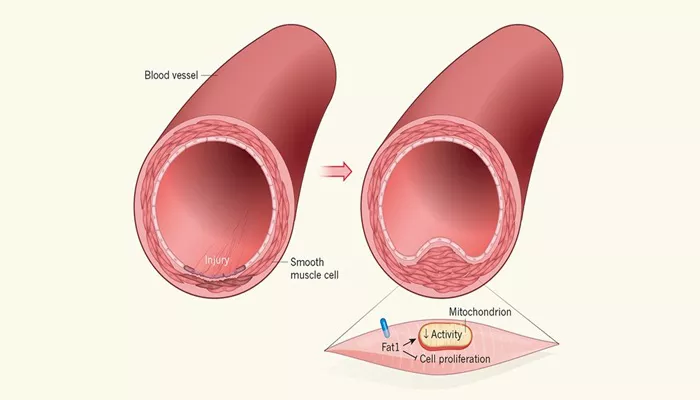Rice is a staple food for billions of people around the world. It is an essential part of many diets, providing a significant source of carbohydrates. However, there has been ongoing debate about the impact of rice consumption on cholesterol levels and overall heart health. This article aims to explore whether rice is harmful to cholesterol, examining different types of rice, their nutritional profiles, and how they fit into a heart-healthy diet.
Understanding Cholesterol And Its Importance
Cholesterol is a waxy substance found in your blood. It is necessary for building healthy cells, but high levels of cholesterol can increase the risk of heart disease. There are two main types of cholesterol:
Low-Density Lipoprotein (LDL): Often referred to as “bad” cholesterol, high levels of LDL can lead to plaque buildup in arteries, increasing the risk of heart attacks and strokes.
High-Density Lipoprotein (HDL): Known as “good” cholesterol, HDL helps remove LDL cholesterol from the bloodstream.
Maintaining a healthy balance between these two types of cholesterol is crucial for cardiovascular health. Diet plays a significant role in managing cholesterol levels.
The Role of Diet in Cholesterol Management
Dietary choices can significantly influence cholesterol levels. Foods high in saturated fats and trans fats can raise LDL cholesterol.
Conversely, foods rich in fiber and healthy fats can help lower LDL levels and increase HDL levels.
When considering rice as part of your diet, it is essential to understand its nutritional content and how it fits into your overall dietary pattern.
Types of Rice And Their Nutritional Profiles
Rice comes in various forms, each with different nutritional benefits.
The two primary categories are refined grains and whole grains.
SEE ALSO: Can High Cholesterol Be Fixed with Exercise?
Refined Grains
Refined grains have been processed to remove the bran and germ, which also removes many nutrients. White rice is a common example of a refined grain. While it provides energy, it lacks fiber and essential nutrients that are beneficial for heart health.
White Rice: Contains minimal fiber (about 0.6 grams per cup) and has a high glycemic index (GI), which means it can cause rapid spikes in blood sugar levels.
Whole Grains
Whole grains contain all parts of the grain, including the bran, germ, and endosperm. They are richer in fiber, vitamins, and minerals compared to refined grains.
Brown Rice: Contains about 3.5 grams of fiber per cup and has a lower GI than white rice. It also provides essential nutrients like magnesium and B vitamins.
Other Whole Grain Varieties: Options like wild rice, red rice, black rice, quinoa, and barley offer even more fiber and nutrients that can contribute positively to heart health.
How Rice Affects Cholesterol Levels
The impact of rice on cholesterol levels largely depends on the type consumed and the overall dietary context. Here are some key points to consider:
White Rice and Cholesterol: Some studies suggest that consuming large amounts of white rice may be linked to higher triglyceride levels due to its high glycemic index. Elevated triglycerides can contribute to increased LDL cholesterol levels.
Brown Rice and Cholesterol: Research indicates that whole grains like brown rice may help lower total cholesterol and LDL cholesterol levels due to their higher fiber content. The soluble fiber found in whole grains can bind to cholesterol in the digestive system, helping to remove it from the body.
Portion Control Matters: Even healthy foods can contribute to weight gain if consumed in excess. Maintaining portion control while including rice in your diet is essential for managing cholesterol levels effectively.
Complementary Foods: What you eat with rice also matters. Pairing rice with vegetables, lean proteins, or healthy fats can create a balanced meal that supports heart health.
Recommendations for Rice Consumption
To incorporate rice into a heart-healthy diet while managing cholesterol levels effectively, consider the following recommendations:
Choose Whole Grains: Opt for brown rice or other whole grain varieties instead of white rice whenever possible. This choice increases fiber intake and provides more nutrients beneficial for heart health.
Monitor Portion Sizes: A serving size of cooked rice is typically half a cup. Be mindful not to exceed this portion regularly to avoid excessive carbohydrate intake.
Balance Your Plate: Combine rice with plenty of vegetables and lean proteins such as chicken or fish. This combination helps create a meal that is not only satisfying but also nutritious.
Limit Processed Foods: Reduce consumption of processed foods high in saturated fats and sugars that can negatively impact cholesterol levels.
Alternatives to Rice
If you are concerned about your cholesterol levels or simply want variety in your diet, consider these nutritious alternatives:
Quinoa: A complete protein that is high in fiber and has a low glycemic index.
Barley: Rich in soluble fiber which can help lower LDL cholesterol.
Cauliflower Rice: A low-carb alternative that provides vitamins without added calories or carbohydrates.
Millet: A gluten-free grain that offers several nutrients beneficial for heart health.
Conclusion
In summary, whether rice is harmful to cholesterol depends on the type consumed and how it fits into your overall diet.
White rice may contribute to higher triglyceride levels when consumed excessively or without balance from other food groups. In contrast, whole grain varieties like brown rice provide beneficial nutrients that can help manage cholesterol levels effectively.
For those concerned about their cholesterol or overall heart health, it is advisable to choose whole grains over refined grains like white rice. Additionally, maintaining portion control and balancing meals with other nutrient-dense foods will support better cardiovascular outcomes.


